Why You Should Stop Using Google As Your Favorite Search Engine
To stop using google search is really a matter of social responsibility, freedom of information and a contribution to a steady and collective monopoly dismantling process.
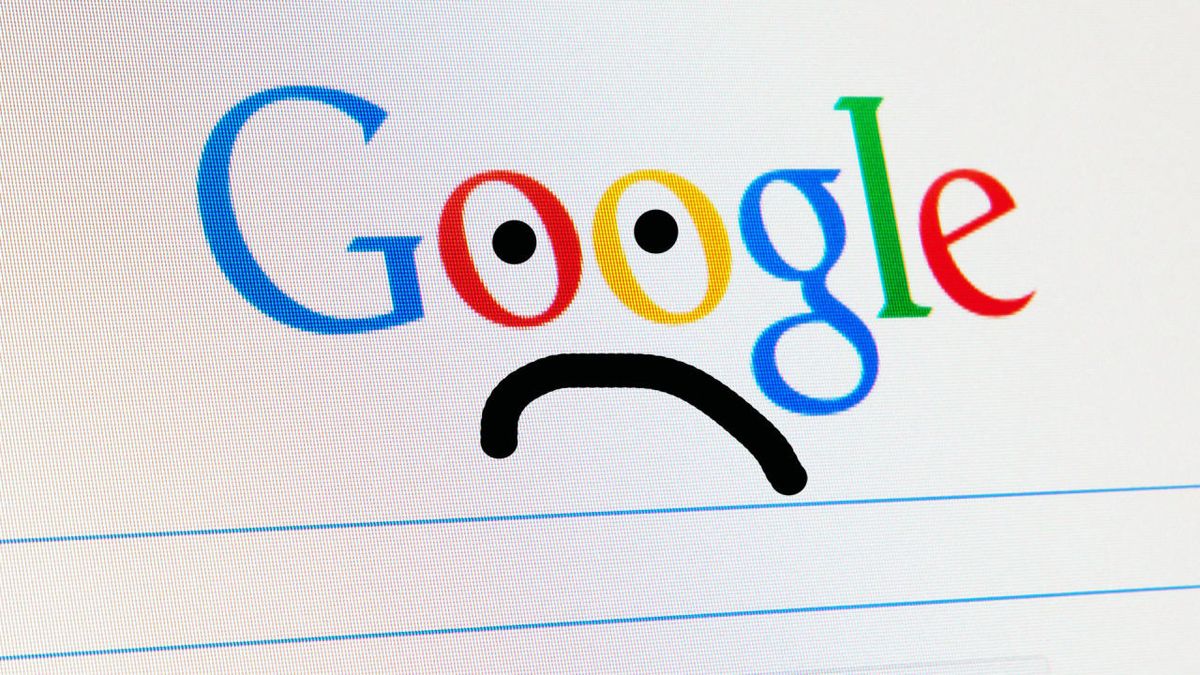
Google is the go to search engine for most internet users. It is the most used search engine all over the world, in almost every country. It owns around 90% of the global search market, not closely followed by Bing and Yahoo.
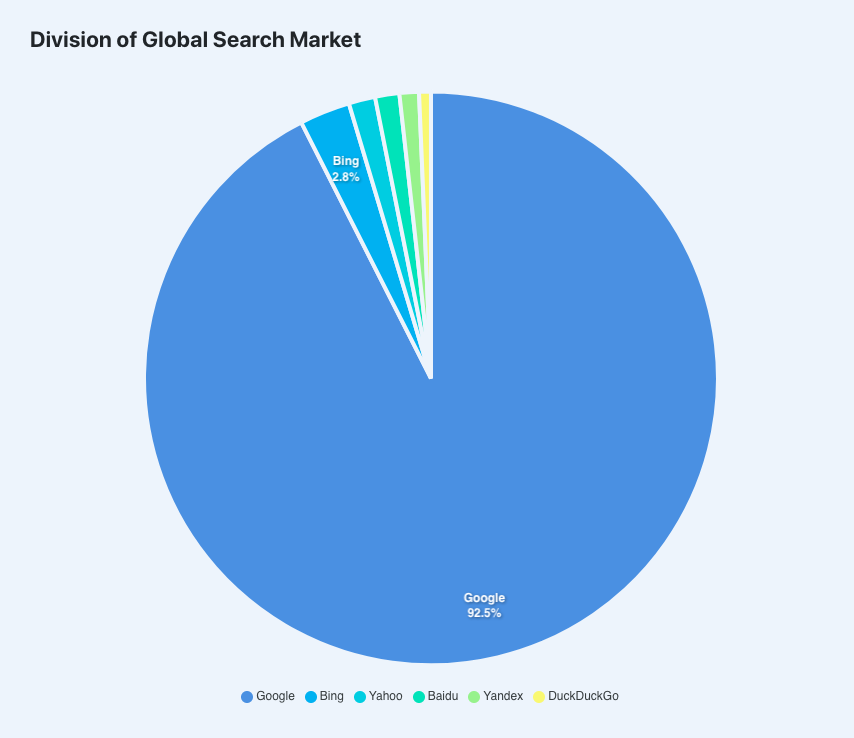
The following break down by country shows how dominant it is in the most industrialized countries, where the percentage of internet users among the whole population is usually higher. It is remarkable the percentage of Google usage in China, where users tend to use their own Chinese specific search engine Baidu.
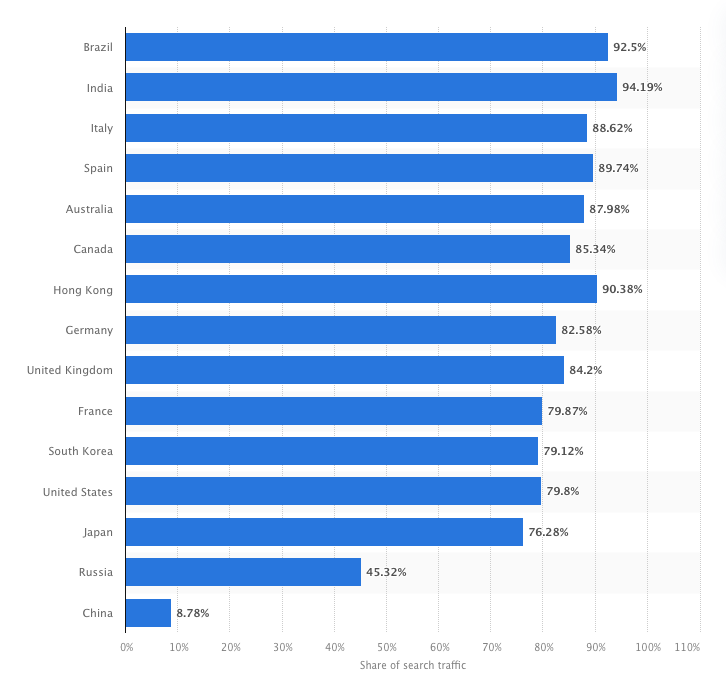
Who Owns Google
Google is no longer (if ever has been) the company created by Larry Page, Sergey Brin, and Scott Hassan, all of them Ph.D. students at Stanford University. Supposedly, they worked from a garage in Menlo Park, California, that belonged to a friend. Larry Page and Sergey Brin own about 14% of Google’s shares and control about 56% voting power through supervoting stock.
Google is in fact, a child company from Alphabet Inc. Alphabet Inc was bubbled up from Google, at the time it started to have Intelligent Agencies like the CIA as customers, as a way to keep Google far from high security and intelligence related contracts. This way Google could continue to be clean, and gain significance as a free service, claiming to be the fastest search engine in the market during the 90's, where it came to public for first time.
The main Alphabet Inc. shareholders are the following:
Larry Page
Larry Page is a co-founder of Google and a member of the alphabet. He was CEO of Alphabet until he resigned in December 2019.
Sergey Brin
Sergey Brin is a co-founder of Google and a member of Alphabet. He was President of Alphabet until December 2019.
Sundar Pichai
He is the new CEO of Google Inc. Prior to this job, He worked at McKinsey. Pichai also served as Senior Vice President of Google’s Android operating system products.
BlackRock, Inc.
BlackRock is a global investment management company and the largest asset manager in the world. The company, whose CEO is Larry Fink, has approximately $ $10 Trillion assets under management as of December 31, 2020.
Vanguard, Inc.
Vanguard is the major shares owner of BlackRock. They manage around $20 Trillion in assets along their corporate structure, which is a mutual company, privately owned. Essentially, the company is owned by the customers whom have their funds being managed. It's founder was John C. Bogle.
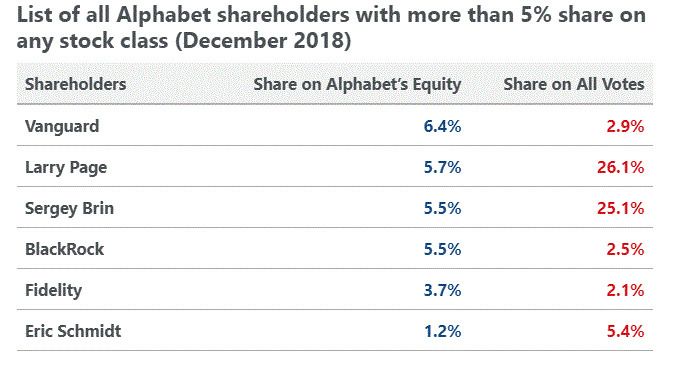
The Controversial Establishment of the Most Powerful Internet Companies
Regarding the fact that some other most powerful companies in the world were founded by a couple of geeks from a Californian garage like Apple. Microsoft Company is commonly known to be originated from the Windows operative system supposedly written by Bill Gates, but the true story is, he grab the code from open source fellows, patented it and used the network of his mother, well connected to IBM, to promote a new revolutionary Operative System to lead the new PC industry.
In turn, Amazon, was supposedly, a book store founded by J. Bezos. With no prior publishing experience, Bezos decided to create an online bookstore after he did a market study to b2c (business to client) services, to understand where he could earn more money, rather make more profit by selling products. AWS, which is the acronym for Amazon Web Services is the leading cloud services provider, managing the Infrastructure of hundreds of thousands of companies. It was supposedly founded, after Bezos book-selling website had technical trouble to serve the requests from potential customers during periods of high volume of sales like Christmas. To solve that he bought hardware (physical servers) in order to provide larger capacity for his book-selling website. They, (Bezos' team at the time) realized, they were not making use of this hardware along the year, exclusively during Christmas. After some brainstorming, they came up with the idea of renting this unused hardware. The idea, was so successful that they created a company out from it, Amazon Web Services. Nice story right?
The Internet Origins
We know, in its origins, Internet was conceived as a pure Military network. With the time, it's usage was steadily spread to Research Institutions and Universities (ARPANET). Lately it was opened to the public reach after the successful implementation of the TCP/IP protocol which guaranteed informational packet (see TCP protocol for details) delivery along a distributed mesh of servers (uniquely identified by their IP Address), thanks to its innovative packet routing and tracing capabilities.
With this origin, we are told, that the fastest document search and indexing system, who was able to operate in that mesh of servers, in that vast amount of documents distributed along different locations, was in fact created by a couple of geeks in their garage in California. It sounds laughable as the very least.
In order to believe that, we should believe that there was absolutely no previous effort nor optimal way to search for or index large amounts of documents. First, under the pure military network, second, under the pure military, research and innovation network and then, for several years on the global open World Wide Web.
Let's do not forget that, military, research and innovation documents are of high security and of great interest, and shared only by the institutions connected to the early Internet. At least, they should have a search engine, haven't they? Should we believe that they had no feasible way to index or search for documents till the premium group of students came together and founded Google?
Google, of course, seems to be a crafted company. Let's say, it was a way to publicly make available a technology which was already been developed and curated by the same Military, Intelligence and academic Institutions and Agencies that made exclusive use of the internet in the early days. Google was packaged, presented and made available to the public as a vehicle to track mainly documents, user activity (searches in the beginning) in the internet, masqueraded as an innovative way to find what you want within an ocean of unsorted information.
Google was, we believe, the first successful Social Engineering Trojan Horse. You could read more on the subject of Social Engineering Trojan Horses and both Social Engineering and Trojan Horse concepts in the following literacy:
- https://www.eclipseaviation.com/was-the-trojan-horse-an-example-of-social-engineering/
- https://slate.com/technology/2009/04/did-google-just-sneakily-launch-a-facebook-killer.html
- https://www.mitnicksecurity.com/the-history-of-social-engineering
- https://sovereignnations.com/2019/08/09/grievance-scholars-trojan-horse-social-justice-faith-academics/
- http://thepakistani.com.pk/social-media-societys-trojan-horse/
Our definition of Social Engineering Trojan Horse is, a tool or system, deliberately created to be injected or deployed in society under the means of a service making citizen's life easier, focused on saving time on something or making possible extended communication capabilities for the individual, locally or around the world. This tool or system will be massively welcome among early adopters, accepted and subsequently integrated into the day-to-day life by most of the individual users (population ?). In the background, the company behind that tool or system, is able to manage, monetize, monitor and control vast amounts of information. Information so useful as the social interactions for naming just one.
As a Trojan Horse deployed in the core of a citadel, it is a complicated matter to stop using or to step out of a Social Engineered product, and even impossible not to loose social connectivity as a result.
In the case of the early stages of Google, the information at its disposal would be available online documents (which information is openly disclosed to the public), user's search inputs (which information is currently being sought, opinion, interests and so on). Lately Google will provide email services, document sharing services, talk services, maps and navigation services and everything you may find on their complete suite of services.
More recently, Social Media, is one of the most incisive Social Engineering Trojan Horses. Creations like Twitter, Facebook, Whatsapp are double-edged swords, providing, from one side, and incredible power for communication and inter-personal, distant relationships. From the other, a dark machinery collecting, monitoring and scrupulously analyzing every single detail from the user interaction with these applications.
In order to extend your information on what kind of data is sniffed from user interaction, have a look to the Surveillance Capitalism documentary from Shoshana Zuboff, still, rarely uncensored on Youtube. Below you could find two of the most complete interviews and presentations from S. Zuboff.
The Dangers of a Search Engine Monopoly
We all should now know, that there are no free services on this society. If a company offers you a service for free, it means that you are the value. These are all companies making profit by their user-based business models. More information on user based business in here and so, in this valuable paper written by Robin Schneider and Junichi Imai, where you could find sentences like:
In this context, the business model has become a frequently applied tool to analyze corporate strategies and the business environment and identify new opportunities for business model innovation. The business model describes the rationale of how an organization creates, delivers, and captures value. The different components of a business model can be summarized by the four questions “who?”, “what?”, “how?” and “why?”. The answers to these questions concretize the business model’s customer segment, its value proposition, the value chain and the revenue model. New types of business models have emerged as a consequence of the increasingly digitalizing economy. In contrast to traditional asset-based business models that are built around linear value chains, the class of digital business models is typically based on digital products or services advertised, offered and distributed via digital channels such as online platforms and mobile applications. In recent years, we could witness strong economic success of these types of businesses. Successful innovators such as Amazon, Google, Microsoft, Apple, Uber, Airbnb, eBay or Salesforce that have only existed a few decades are now among the most valuable companies in the world.
You may see which companies are underlined by Schenider and Imai from the Japan Association of Real Options and Strategy, quite a title.
The following video, greatly explains the dangers we are all exposed, as the Information Society, when we have a giant company (like Google), holding lots of conflicts of interest with a wide range of Social, Political, Economic, Academic and Military Organizations and Institutions. It is an interview to Robert Epstein, who has done vast research on the matter of this article.
Alternatives to Google Search Engine
It hard to stop using Google, it provides good and complete results, it has a well established free service full of features. But, knowing what we already know, the matter is not about choosing the best service, but choosing the best uncensored, unbiased and uncaptured search engine.
There are tones of Google alternatives sites, comparisons and so on out there, so we'll not provide an extensive, detailed list. Something to underline for the shake of this article are the differences of search results using key (controversial) search terms.
Our first candidate,
DuckDuckGo
Completely privacy oriented search engine, they provide also a great mobile application which is a browser. They provide a Maps application which is sourced from Apple maps that works as expected and more than reasonable image results. Their searches are quite precise, mainly for English language. The result sets strongly differ from the ones provided Google in controversial topics. We'll be proving some examples though.
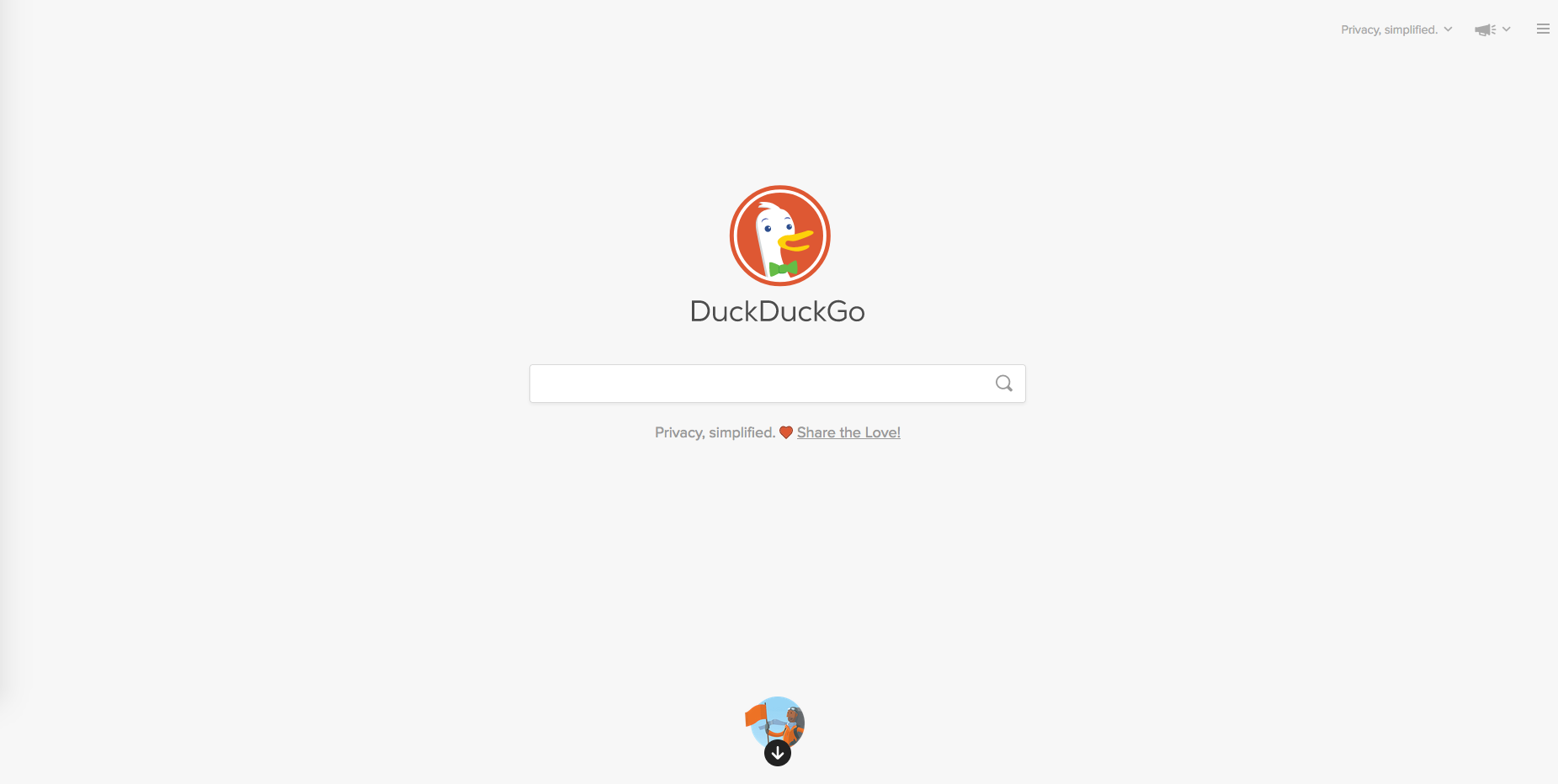
The second option,
Ecosia
They claim they plant a tree for each search any user enters into their search engine. If they have success , there will be no space left for humans to live on this earth. Jokes apart, it is independently founded, they provide good options like Shopping and Image results as well. Their mobile application is beautifully crafted. A good option for environmentalists (beware the NetZero!)
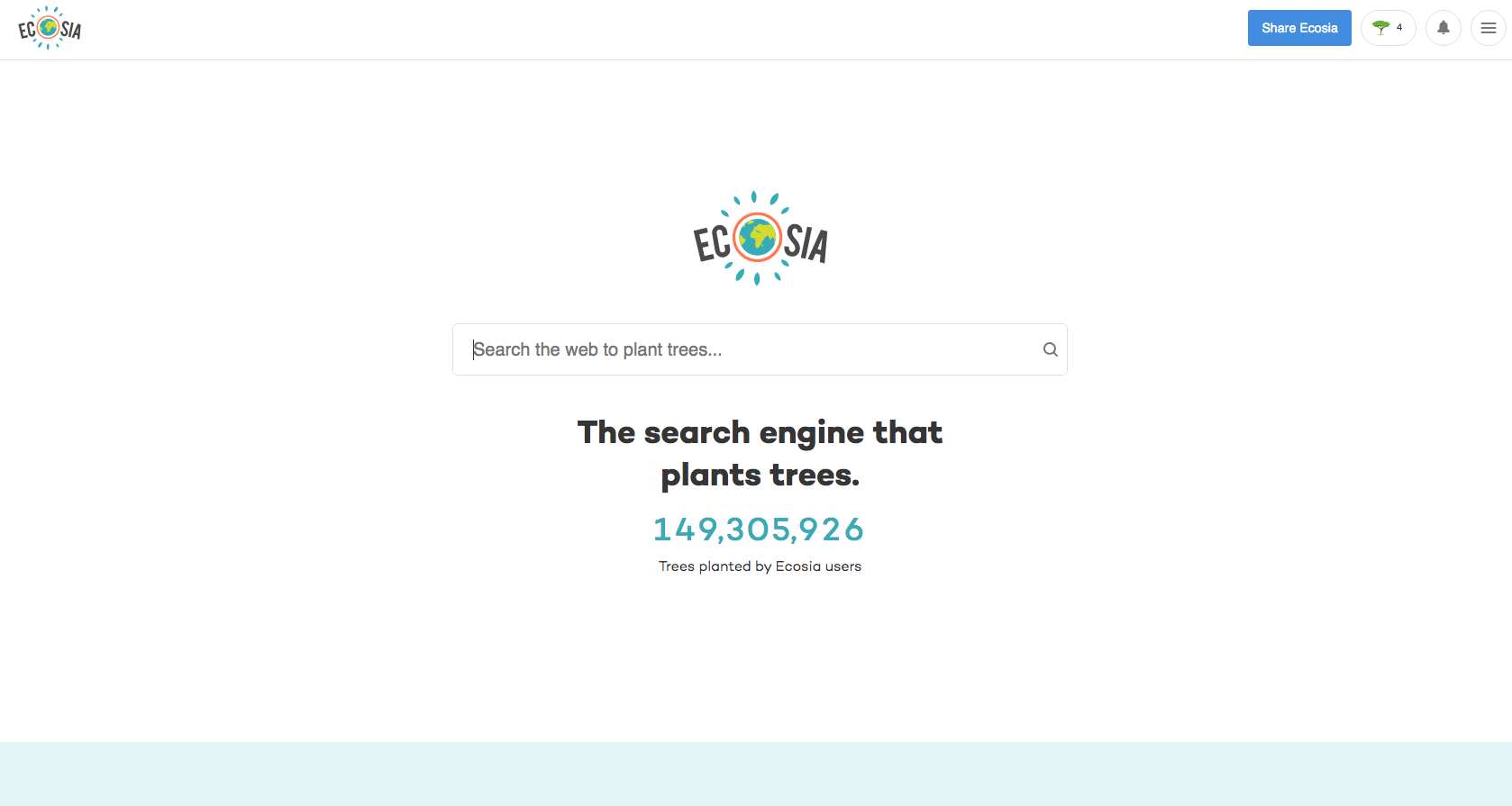
A lesser known alternative,
Qwant
They claim to be a privacy oriented search engine as Duckduckgo claims, offering good a Privacy Policy disclaimer. Their best feature for us is their own service for Maps, which works actually good. The result sets are similar to the ones provided by Duckduckgo and Ecosia. Another good point is that they offer a version specific for children and young teenagers where they filter out violent or pornographic content.
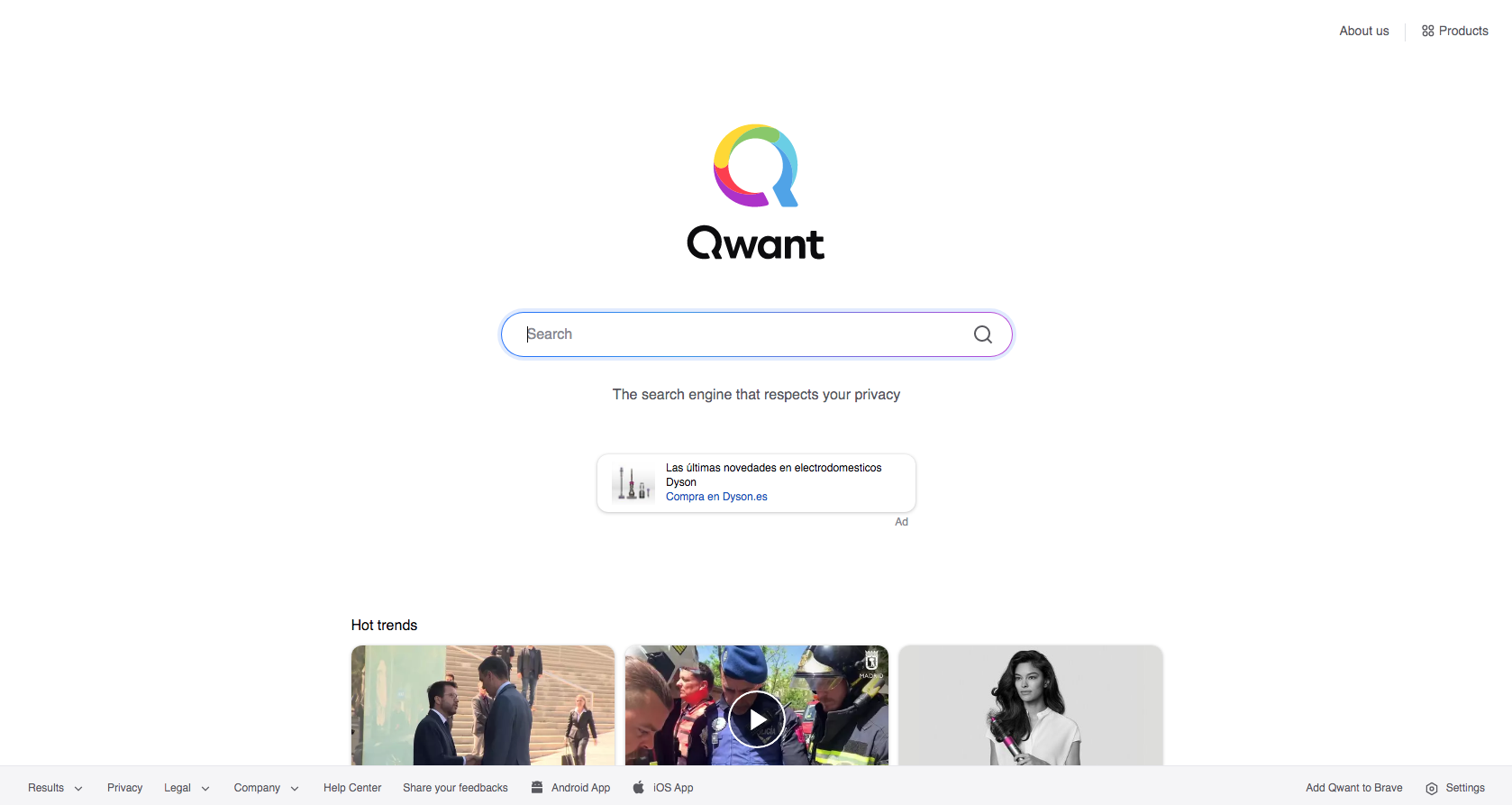
Result Set Comparison using Controversial search terms
The key point to make use of a free search engine, is the censorship that currently Google applies in concrete search terms. Zach Vorhies was a ex-google employee who claims they have a blacklisting system, filtering out every possible website having even some glimpses of information for certain matters. In his website, Zach shows examples of blacklisted information, for us, this is not surprising. Some of the mentioned:
- las vegas shooting
- is stephen paddock a democrat
- cancer cure
- cure cancer
- The 8th Amendment of the Constitution of Ireland
- Tony Bourdain suicide
- gop train crash assassination attempt
Now, we'll provide you with some search terms you could use to test for yourself such claimed censorship upon sensible search terms, always declined from Google speakers. Please enter the following search terms first on Google, and then in any or in every of the listed above:
- Judy Mikovits
- Trudeau Fidel Castro
- Cancer cure
- Vaccine induced immunodeficiency
You will see there is a vast difference, if you take into consideration the first 10 results which are the 90% most clicked by users. This means that, only in 10% of searches, the user browses down to the positions 10 to 20 from the list of scored results. From position 20 on, less than 1% of searches come to visualize them in their browser screen.
Other People is Taking It Seriously
We've found some other people writing online posts where they explain their reasons to deprecate Google as their preferred search engine. Find some of them next:
- https://medium.com/digiprivacy/i-stopped-using-google-as-my-search-engine-heres-why-7a3a1b4fef81
- https://thefederalist.com/2021/04/23/if-you-dont-want-to-use-googles-biased-search-engine-try-this/
- https://www.howtogeek.com/348792/how-to-remove-google-from-your-life/
It is a matter of social responsibility, freedom of information and a contribution to a steady and collective monopoly dismantling process.
Take care.
